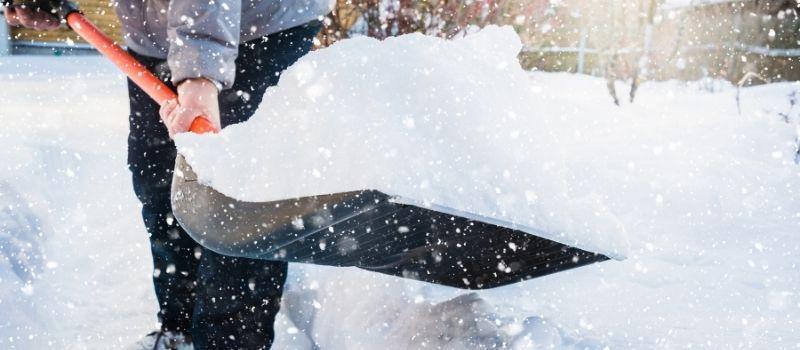When bad weather arrives, making sure paths and roads are clear and safe is important. This is where the confusion of whom the responsibility falls on to clear streets and roads arises.
As a business owner, you want to make sure your land is safe to avoid slips or trips for employees and visitors. Do you know what is the council's responsibility to clear? Do you know what is your responsibility to clear?
How did this start?
This controversy started in the winter of 2010. Headlines such as “Health and Safety experts warn: don’t clear icy pavements, you could get sued” causing concerns for the public, during one of the coldest winters for years.
What does the legislation say?
The Workplace Health Safety and Welfare Regulations 1992, Reg 12 state, “It is practical that every floor in a workplace and every traffic route in a workplace shall be kept free from obstruction and any article or substance which may cause a person to slip, trip or fall.”
In 2010, the Institution of Occupational Safety and Health, which guides businesses throughout the country, stated, “When clearing snow and ice, it is worth stopping at the boundaries of the property under your control.”
Councils have a responsibility for public highways, but say they have no legal obligation to clear pavements. The Royal Society for the Prevention of Accidents expressed their disappointment with the headlines in 2010. They said, “this is not showing a particularly good attitude. It would be much safer for the public to clear paths, even if it’s not on their property.”
What you need to take from this is that councils will clear certain roads but no pavements. It will be left to the public to clear pavements if they wish to do so.
What should you do as a business owner?
The Occupier’s Liability Act 1957 states the owner or occupier of private land should ensure safe access for staff and visitors, this includes snow and ice.
With UK weather being unpredictable and averaging 23.7 days of snow or sleet per year, it is important that people can clear pathways without the risk of legal action.
The government gave details on how to clear snow and ice and avoid legal action:
- Clear the snow early in the day – it’s easier to move fresh, loose snow
- Don’t use water – it might refreeze and turn to black ice
- Use salt if possible – it will melt the ice or snow and stop it from refreezing overnight
- If salt is unavailable, you can use ash and sand – this will provide grip underfoot
- Pay extra attention when clearing steps and steep pathways – use extra if needed
As a business owner, you will need to make sure you clear your land as thoroughly as you possibly can.
What should I use to clear snow?
To clear snow effectively, we recommend using a snow shovel.
The Compact Snow Shovel with Telescopic Handle is the ideal tool for shovelling snow. The telescopic handle allows you to extend the handle depending on your preference when using the shovel. The handle is also convenient as it makes it easier to store the shovel away when not in use.
If you need something that is suitable for heavy-duty use, the CEMO Heavy Duty GRP Snow Shovel is the shovel for you. Manufactured to be long-lasting and robust, this shovel is built for the worst winter can throw at you.
Making sure you have the right tools to protect your property and land from the elements is a must. We have many more products that can be used to protect your property or land from the conditions.
If you are still a little confused about whether you should be clearing your paths or roads, you can find more information on your local council's website.
If you’d like to find out more about the snow care products we have available, please contact our sales team on 01777 858009 or email sales@kingfisherdirect.co.uk.






